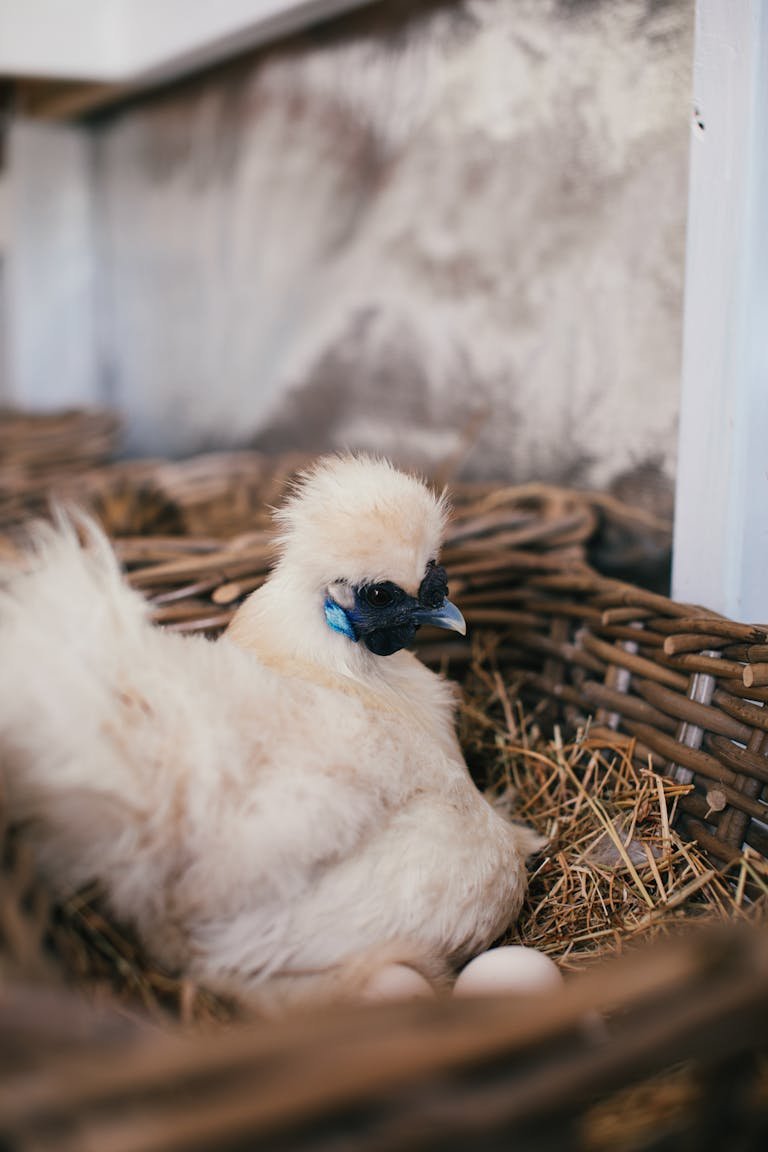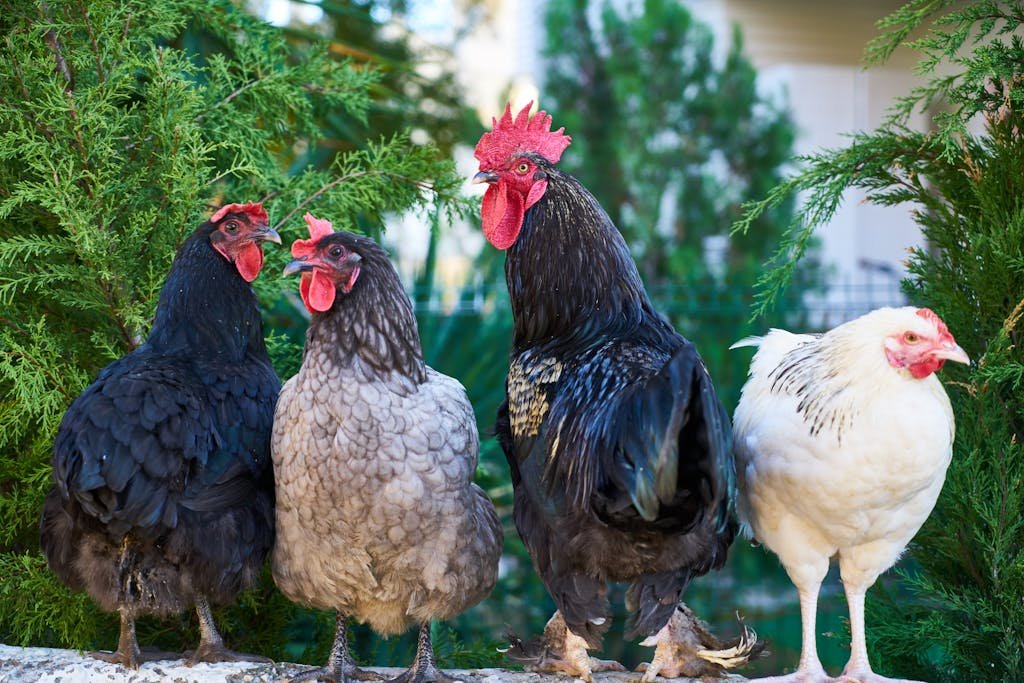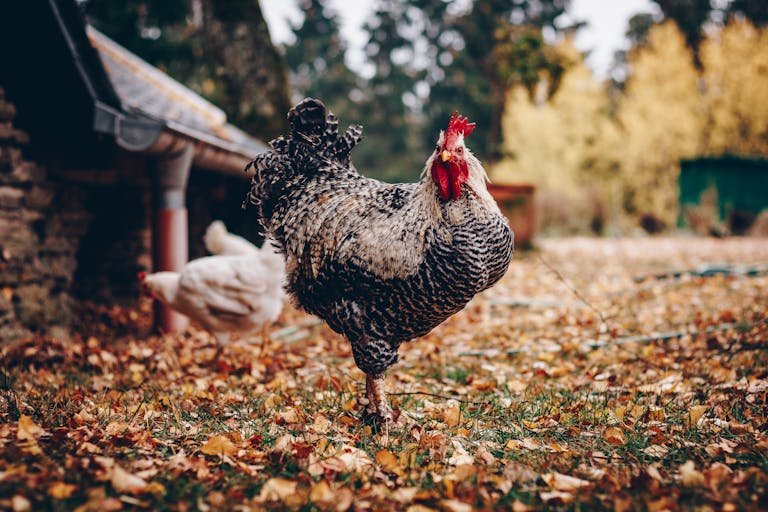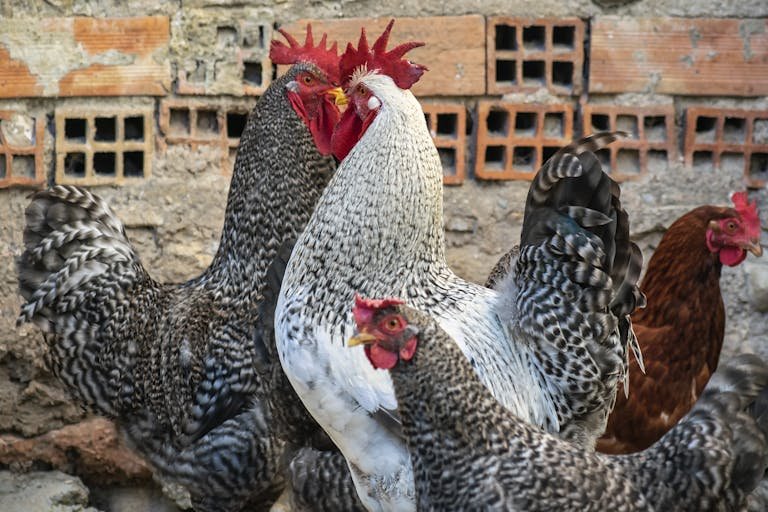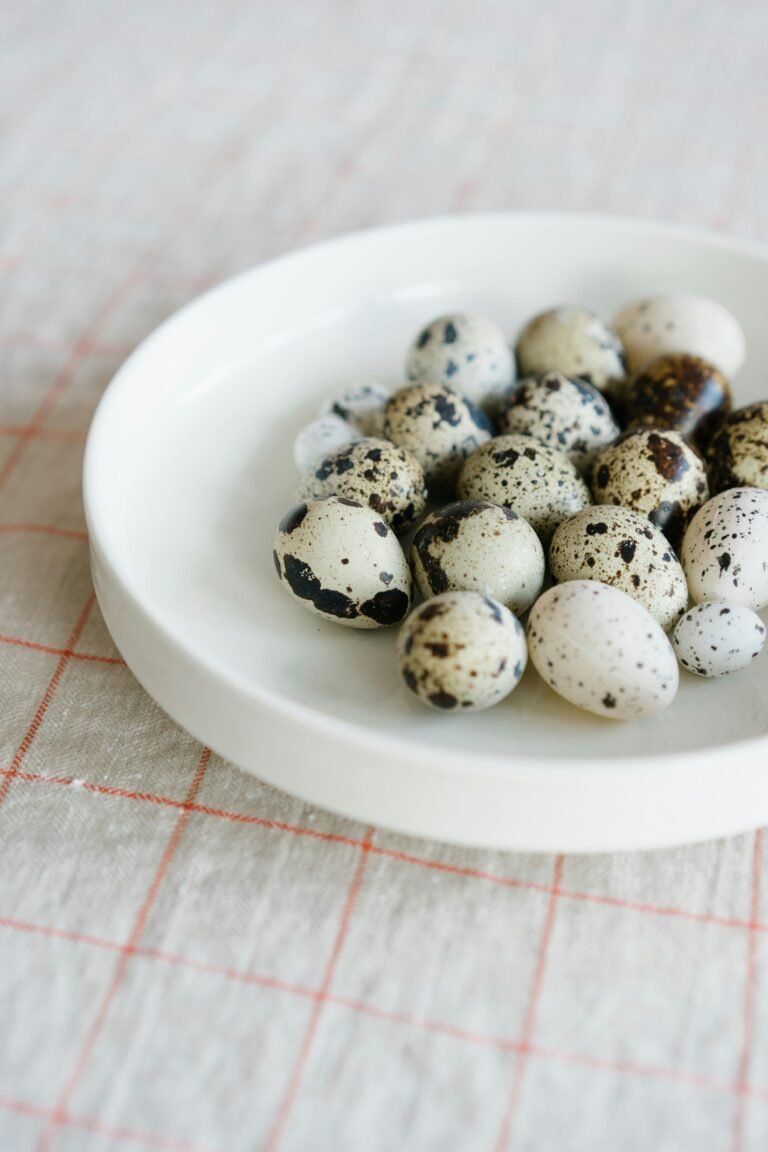Chicken Sleep Schedule Revealed!

The fowls among them, the chickens, were said to sleep for 8 hours at night. The general information that chickens sleep is important to be known by any keeper of these birds. Sleep plays a very important role in helping the poultry birds gain energy for laying eggs and carrying out other activities. Chickens are interesting animals and if you own one or several, or planning to be a chicken owner then you should find out how long chickens sleep and what wakes them up from sleep. It is interesting to note that the average chicken would sleep for approximately 8 hours at night like most humans do.
In this blog, we discuss How Long Chickens Sleep, the Factors affecting Chicken Sleep, and How Chickens Sleep.
How Long Do Chickens Sleep
Chickens typically sleep for around 8 hours, similar to humans. Sometimes it may vary. Chickens have a nocturnal-crepuscular biorhythm, which means they are most active during the dawn and dusk; thus, they have a natural sleep-wake cycle. Such behavior has developed from their natural origins and ancestors when they had to search for food and a safe place during the night-time.
Crepuscular Behavior
Chickens are crepuscular, therefore they lie down during the night and nap during a short period of the day. Its activity is most concentrated in the early morning and in the middle of the afternoon. This pattern can also be used to avail optimal time of the day for instance when it is not extremely hot or to avoid more dangerous moments of the day when going out is risky.
Factors Affecting Chickens Sleep
Seasonal Changes
Chickens can sleep for several hours or a few hours depending on the period of the year or year. Chickens usually sleep at night and some months have fewer hours of daylight throughout the day; thus, chickens sleep longer during the winter season. This must be triggered by the shorter days, as it informs them that maybe they should sleep more. On the other hand, during summer, warmer temperatures and longer days cause shortening of the sleep duration.
Light Levels
In this case, exposure to light does have an important effect in controlling a chicken’s sleeping pattern. The chickens are sensitive to the intensity of light, and therefore they are most affected by excessive lighting during their sleeping hours. Promise them that they should have a place to rest that is not only dark and quiet but is also comfortable for them.
Noise Levels
Chickens especially do not like any form of disturbance during their sleep such as loud or sharp noises. They can be stressed due to the presence of other animals, or due to loud sounds produced from vehicles or machines which may interfere with their sleep. It is crucial to safeguard your flock because they need a stress-free atmosphere to be able to sleep properly. It takes 8 hours for the body to have a complete rest and to ensure that there are no disturbances to the sleep the environment should be quiet.
Where Do Chickens Like to Sleep?
Roosting Instincts
Chickens should sleep at night on an elevated structure, called the roosts. This behavior is attributed to the fact that the birds are domesticated from their natural setting wild birds that would perch on trees to avoid ground facers. To replicate this natural behavior in a domestic environment, it is important to provide the pigeons with roosts. I also used to feed all my Chickens at night and let them sleep in high perches since it makes them sleep in cool environment.
Benefits of Elevated Perches
These are the Benefits of Elevated Perches for Chickens to sleep in elevated perches.
Safety
Perching allows them to stay off the ground and that helps them in avoiding most of the predators that they come across. It gives them a safe feeling knowing that many of the people who might harm them physically get easily discouraged during the night.
Warmth
Chickens can cockerel or perch themselves on raised structures where they can cluck, huddle, and keep warm during cold nights. This helps keep them warm since there is body heat to keep them warm and they do not use much energy to do so.
Social Bonding
Roosting close to one another also enhances social interactions with the flock because the birds are closely associated. Chickens are social animals, and roosting wisdom that is, sleeping together basically serves to reinforce the order and hierarchy within the flock.
How Do Chickens Sleep?
Sleeping Position
Chickens typically sleep while perched on their roosts. They can walk on two legs, but they prefer to sit on one and tuck the other under them for warmth. These positions are not only favored by them but they also aid in heat conservation.
Light Sleep vs. Deep Sleep
Chickens, for much of the night, remain in light sleep to wake up to threats within their environment and be ready to fly away. They often stay awake during this period, and keep one eye open. However, they can get shorter but more intense bouts of having both eyes shut while being less likely to be fully conscious of the environment.
Preening During Sleep
Chickens may sometimes wake up to do something like preening while still at night or early in the morning. This maintains their hygiene, especially their feathers, and prancing is a soothing activity that helps bring about sleep again.
The Sleep Posture
One-Legged Stand
Chickens usually sleep standing on one leg while being oriented towards the wall whenever they are on the roost. This is rather an odd posture, but it has a certain rationale behind it.
Energy Conservation
They wrap one of their legs around their body to maintain body heat thus reducing energy used during sleeping. This adaptation has the benefit of enabling them to save energy while at the same time regulating their body temperatures.
Balance
They can still maintain a good balance with one leg, thanks to their strong tendons and a special locking mechanism in their ankle joint. This gives this unique adaptation the benefit of keeping them on the perch without falling off whenever they are asleep.
Resting the Other Leg
The other leg is positioned near the central body, encased under a wing to conserve heat. They may occasionally reposition themselves and change the legs they use at night.
Sleep Stages
Light Sleep
Chickens mainly roost or rest at night and these fowls spend most of the night in a state of semi-torpor. They will keep one eye open for business, which is a remnant of their more primitive ancestors, enabling them to spot any danger.
Deep Sleep
Chickens are also capable of dozing off with their two eyes closed, although this is not a deep sleep. They last for fewer minutes than light sleep but are essential for the restoration of the body and brain.
Preening
However, chickens might flap their wings or even peck while they are still asleep, though this activity is minimal. This behavior enables them to groom themselves and could also be an indication of contentment or rest.
Variations in Sleep Position
While roosting and standing on one leg is the preferred sleep position, you might occasionally see some deviations.
Sitting
But some chickens perch and sit all night so some chickens particularly chicks may sleep while sitting. This is especially the case because many children are still in the process of developing their ability to maintain balance and control their movements.
Flooring
However, there are special occasions on which a chicken can spend the night on the floor of the coop. It could be because of overcrowding, which the birds may not like; discomfort with the roost design, or some health concerns. It is vital to constantly observe the health of your chickens, and also provide them with enough space to roost on so that they do not fall or injure themselves while jumping on the perch.
Nesting Boxes
If the nesting boxes are higher up or there is inadequate roosting space, some of the chickens may prefer to sleep in the nesting boxes though it is not the favored position among them. This can be prevented by ensuring adequate places for roosting and making sure the nest boxes are mainly for laying.
Ensuring Proper Sleep for Your Chickens
Setting Up a Comfortable Coop
Creating a comfortable environment for your chickens is key to ensuring they get enough rest. This includes providing a secure, well-ventilated coop that protects them from the elements and predators.
Providing Suitable Roosts
Provide strong poles or other materials like branches at different levels within the coop where the chickens can comfortably perch. Chickens tend to prefer roosts that are further off the ground hence ensure that there are roosts at the tallest levels for all the birds in your flock.
Managing Light and Noise
For proper lighting control to ensure good sleep is achieved, ensure the coop light is well covered with blackout fabrics or place the coop in a shaded region. Moreover, try to reduce disturbance near the coop so that your chickens can get a peaceful environment in which to live.
Read Also: Do Hens Make Noise?
Final Words
There are some factors one may need to consider to gain an understanding of how long chickens sleep and some factors that may affect this. It is important to make sure your chickens have a nice, safe, clean, and quiet environment where they can relax and sleep. However, it is important to note that well-rested chickens are undoubtedly more proficient at laying eggs or growing in size when you are rearing them for their eggs or meat or even for fancy purposes.
